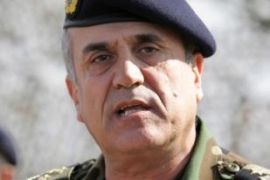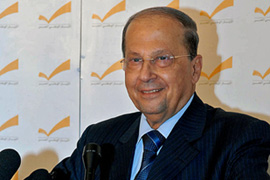Lebanon vote delayed again
Presidential voting postponed another week, the eighth time since late September.

Leadership vacuum
|
Your Views |
|
LibyaWest, Los Angeles, USA |
Saad Hariri, the majority leader, accused the opposition of seeking to scuttle the presidential election, saying those who stood in the way “will shoulder the responsibility”.
The presidency is reserved for a Maronite Christian under Lebanon‘s sectarian power-sharing system.
The 128-seat legislature needs to obtain a two-thirds quorum to begin voting for the president, as well as to amend the constitution to allow an army chief to hold the post.
| Special report |
The Hezbollah-led opposition is being accused of using the opportunity provided by the quorum requirement to bargain for a say in the new government.
“The opposition is still trying to put up obstacles as a means of blackmail in order to obtain additional gains with regards to the head of the new cabinet and ministerial portfolios,” Ahmed Fatfat, the sports and youth minister, told The Associated Press.
Balance of power
|
|
|
Aoun wants the opposition to have a |
The country’s opposition leader, Michel Aoun, has also withheld support until they are promised “rights” in decision-making, saying he doubts that a new president will be elected before the year ends.
Suleiman, who is on good terms with Hezbollah, was appointed to his post in 1998 when Syria had military control of Lebanon.
Nevertheless, he has gained respect across the political spectrum for keeping the army neutral and curbing outbreaks of civil strife.
If elected, Suleiman will have to tread carefully if he aims to be a more unifying president than Lahoud, also a former army chief, whose term extension in 2004 was pushed by Syria.

